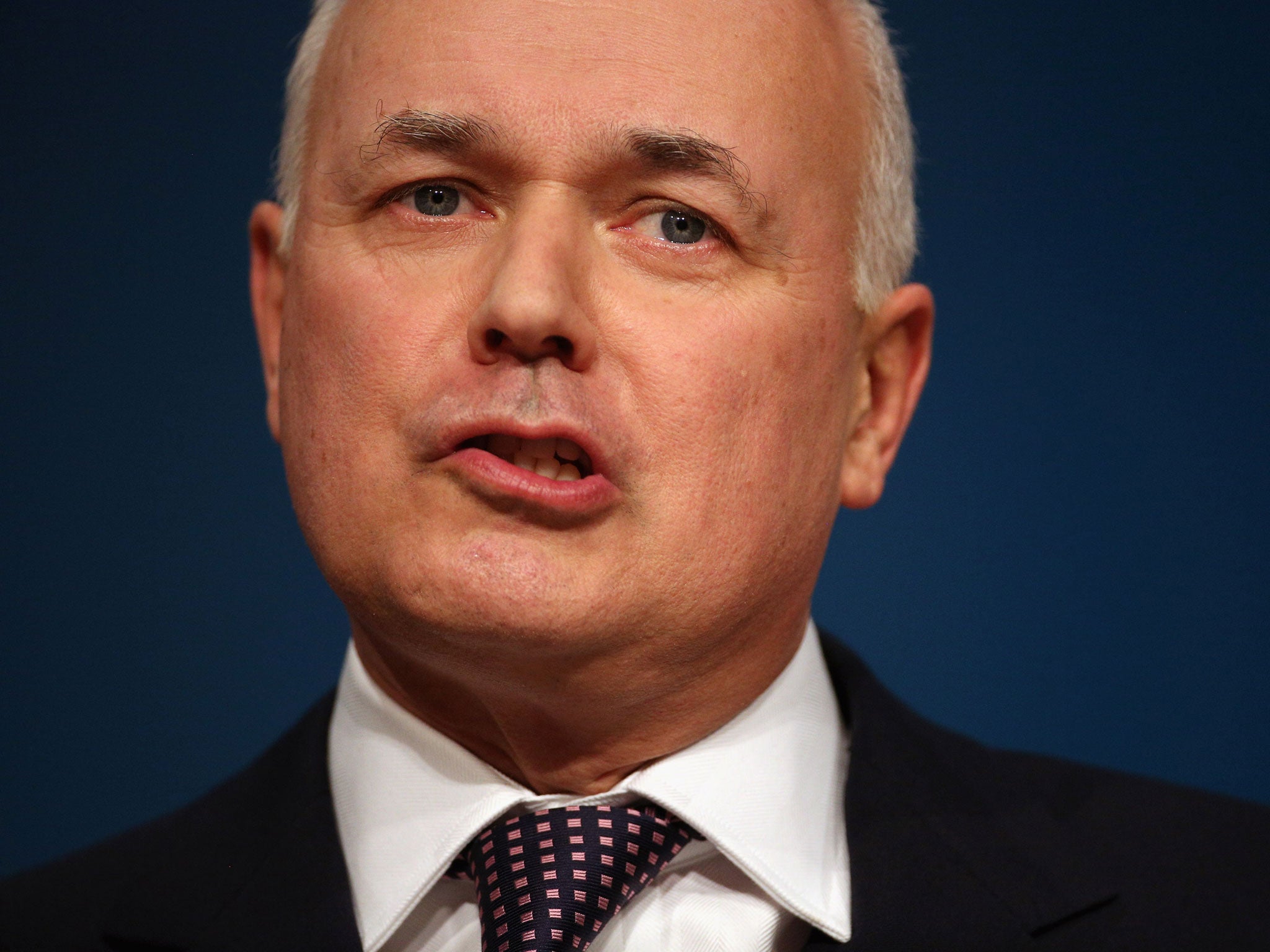Caring Conservatives? It won't be easy for Iain Duncan Smith to shake the toxic tag
The Work and Pensions Secretary is labouring to reshape the Tory image


That's the thing about Iain Duncan Smith: the nearly man of British politics. He is nearly right about many unexpected things. And he was right in a speech in Washington yesterday. He said “finger-wagging” at the unmarried and the poor gave the impression that the Conservative party was “uncaring”.
He berated Conservative politicians in the past - although he knows that we know that some of them are still doing it - for using “harsh punitive language” when talking about poverty. He has dedicated his political career since he was ousted from the Tory leadership a decade ago to trying to demonstrate the truth of the proposition that Tories can and should care about the poor and that most of them do.
This is all admirable, and his comments about marriage were an honourable attempt to struggle with the riddle which has stumped most politicians who are not fundamentalists either for or against. “The value of a strong and stable family lies at the heart of our Conservative values, and at the heart of that lies the most successful man-made institution of marriage,” he told his Republican audience in America. “It’s not that other people don’t agree, it’s that Conservatives too often make them feel uneasy when they justify their belief by attacking selected groups of people whose lifestyles don’t fit.”
It was a good try. I remember the Labour government trying to draw up a “family policy” which spent months trying to redraft a sentence that read something like this: “Marriage is a good thing and people who choose not to get married are awfully nice too.”
Duncan Smith's problem is that he is in the same party as Tim Loughton, the embittered former minister who said something unforgivable the other day about Sarah Teather’s failure to produce a family. That was just nastiness, but Loughton said other things last weekend that were not quite so personal but still just as damaging to how people see the Tories. He told the Conservative Renewal conference - a gathering set up to try to widen the Tory appeal to working-class voters that was hurriedly ditched by the leadership when it started to look a bit UKIP - that, if a couple were married, there was a one in five chance that they would split by their child's fifth birthday, but that if they were not married that chance rose to one in three. It is a common fake fact on the Tory right, the implication being that, if unmarried couples got married, their chances of splitting up would magically reduce. This is a simply misuse of statistics: the reasons some couples split are presumably associated with the reasons they do not get married.
I am not sure that Duncan Smith’s formulation gets round the problem that many people think that a large part of the Conservative party - if not the Prime Minister and Chancellor - disapproves of unmarried couples and lone parents. But at least the Work and Pensions Secretary is trying.
He has a harder task in shaking off the image of the Tories as heartless about poverty. It doesn’t help that Universal Credit, his grand and ambitious “simplification” of the benefits system, has failed to get off the ground and will now - we can safely predict - never happen. And it doesn’t help that David Cameron and George Osborne look like well-fed southern softies who are out of touch with the council estates with which Duncan Smith is surprisingly familiar.
But Duncan Smith’s greatest problem is that he is trying to save huge sums of money from the social security system at a time when unemployment is high. Labour should have done it when they presided over 10 years of steady growth. Indeed, “ending welfare as we know it” was one of the attractive Clinton slogans adopted by New Labour, but it was easier to do other things, and so, mostly unfairly, the Conservative party has to pay the “uncaring” price.

Join our commenting forum
Join thought-provoking conversations, follow other Independent readers and see their replies